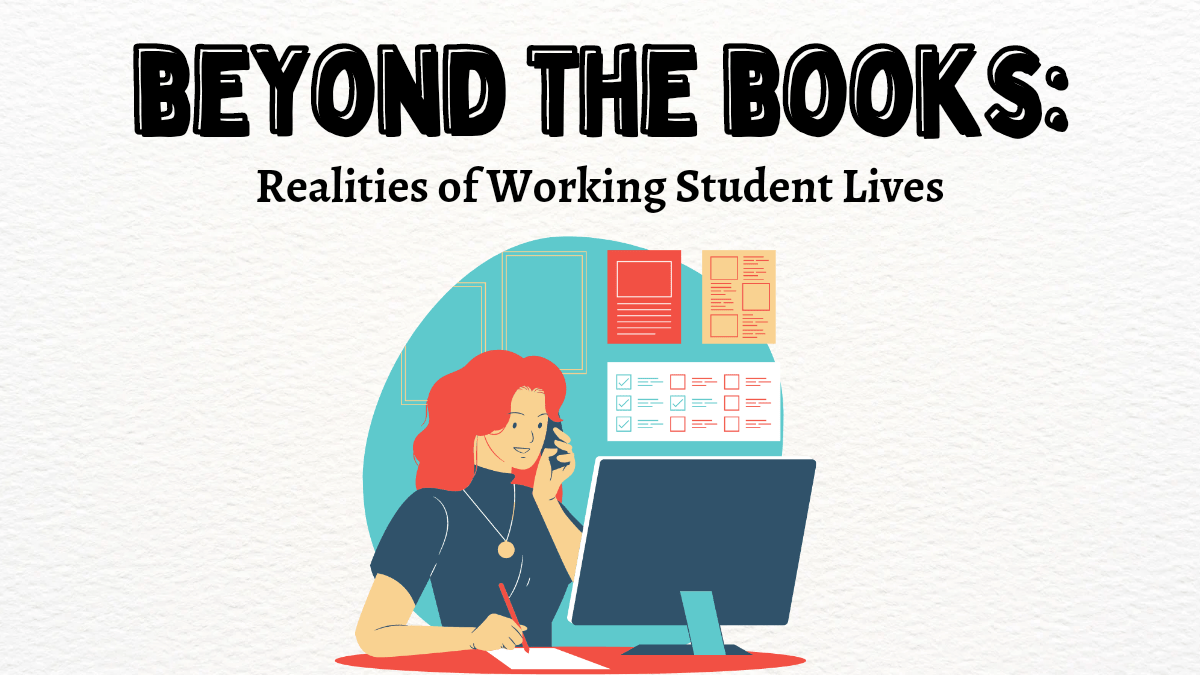Beyond the Books: Exploring the Realities of Working Student Lives

In today’s fast-paced and competitive world, the pursuit of higher education often comes hand in hand with the need to work. The image of a dedicated student buried in books, meticulously taking notes in lecture halls, has expanded to include individuals juggling multiple responsibilities, such as part-time jobs and other commitments. These working students, fueled by ambition and the desire for a better future, embark on a unique journey, one that challenges their time management skills and tests their ability to balance academics and work. This article delves into the realities of working student lives, shedding light on their experiences, struggles, and triumphs, while highlighting the determination and resilience that define their pursuit of knowledge and financial stability.
The Balancing Act: Managing Time and Priorities
Being a working student requires impeccable time management skills and the ability to prioritize effectively. From attending lectures and completing assignments to fulfilling work responsibilities, these students must navigate a complex web of commitments. The pressure to excel academically while earning a living can be overwhelming, often leaving little room for rest and leisure. However, despite the challenges, many working students have discovered innovative ways to strike a balance. They embrace tools such as calendars, to-do lists, and online scheduling apps to streamline their daily routines. By honing their time management skills, they not only conquer the demands of academia and work but also carve out precious moments for personal growth and self-care.
Financial Realities: The Struggle for Stability
For working students, financial stability is a constant concern that often drives their decision to balance work and studies. Rising tuition fees, accommodation costs, and the overall cost of living push these individuals to seek employment opportunities while pursuing their education. Many work part-time jobs to cover their expenses, often taking up positions that may not align with their desired career paths. The financial strain can be daunting, leaving little room for discretionary spending or social activities. Yet, in the face of these challenges, working students display remarkable resilience. They become adept at budgeting, finding creative ways to make ends meet, and even learning valuable financial management skills that will serve them well in the future.
The Hidden Benefits: Gaining Professional Experience
Working students often gain valuable professional experience that enhances their employability in the long run. The ability to juggle academic responsibilities and work commitments demonstrates their multitasking skills, adaptability, and strong work ethic. By engaging in part-time jobs, internships, or co-op programs, these individuals build a solid foundation of practical knowledge that complements their theoretical education. They are exposed to real-world scenarios, workplace dynamics, and the challenges of meeting deadlines and delivering quality work. Moreover, the networking opportunities that arise from their jobs can prove instrumental in securing future employment, as they establish connections within their chosen fields.
Mental Health: Navigating the Pressure
The constant juggling act between work and studies can take a toll on the mental health of working students. The pressure to perform well academically, excel at work, and manage personal responsibilities can lead to stress, anxiety, and burnout. Recognizing the importance of mental well-being, universities and colleges are now implementing support systems tailored to the needs of these students. Counseling services, wellness programs, and mentorship initiatives are being developed to provide the necessary guidance and resources for students to navigate the challenges they face. It is crucial to acknowledge and address the mental health aspect of being a working student, ensuring that individuals can thrive academically and professionally while maintaining their overall well-being.
The realities of working student lives extend far beyond the confines of textbooks and lecture halls. These individuals embody the essence of determination, resilience, and adaptability as they strive to strike a delicate balance between their academic pursuits and work commitments. The challenges they face are multifaceted, from managing time and finances to maintaining mental well-being. However, working students also reap numerous rewards, gaining valuable professional experience and developing skills that will serve them in their future careers. As we explore the realities of their lives, it becomes evident that these students are not merely students with jobs; they are individuals shaping their destinies and forging their own paths towards success.
Clarisse is a dedicated writer, full-time BPO employee, and a journalism student. Her captivating storytelling and commitment to truth-telling make her a powerful voice in the field. Balancing her professional and academic pursuits, Clarisse aims to create lasting impact through her versatile writing skills and passion for shedding light on anything that she writes.






